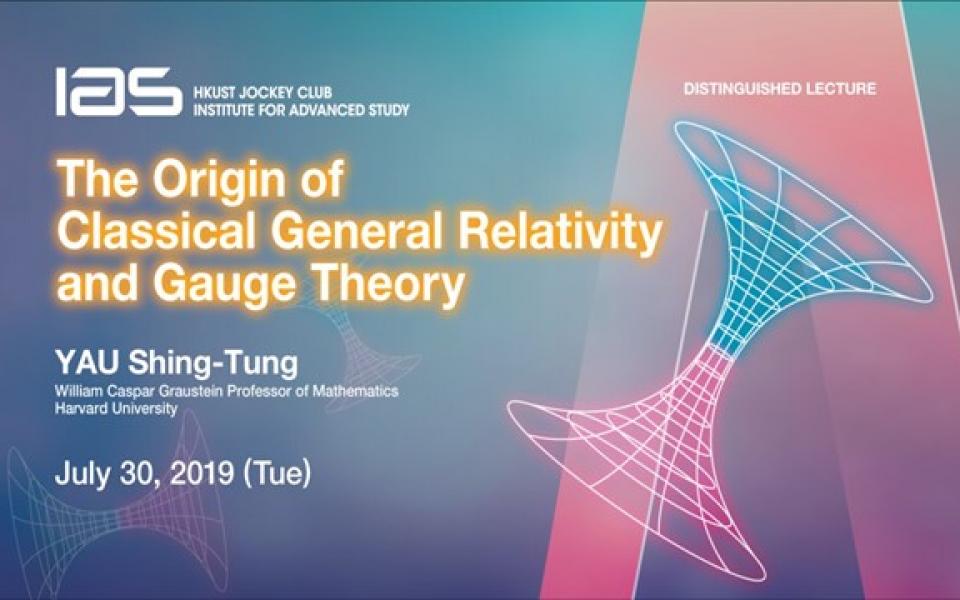Abstract
In this lecture, the speaker will give a description of the ideas that lead to great success of classical general relativity and modern gauge theory.
About the speaker
Prof. Yau Shing-Tung received his PhD in Mathematics from the University of California, Berkeley in 1969. He spent a year as a Member of the Institute for Advanced Study, Princeton before joining Stony Brook University in 1972 as an Assistant Professor. He worked in Stanford University and University of California, San Diego respectively and moved to Harvard University in 1987, where he is now the William Caspar Graustein Professor of Mathematics.
Prof. Yau’s work is in geometry in the broadest sense. He was the first person to combine differential geometry and analysis, and used their interaction to solve longstanding problems in both subjects. His work opened up new directions, set foundations and changed people’s perspectives towards mathematics and their applications in physics and computer science. His proof of the Calabi conjecture gave solutions of multiple well-known open problems in algebraic geometry and also allowed physicists to show that string theory is a viable candidate for a unified theory of nature. Calabi–Yau manifolds are among the ‘standard toolkit’ for string theorists today.
Prof. Yau received the Wolf Prize in Mathematics in 2010 in recognition of his lifetime contribution to geometric analysis, and his enormous impact on many areas of geometry and physics. He was granted the Fields Medal in 1982 and numerous awards including the Marcel Grossmann Award (2018), the US National Medal of Science (1997), the Crafoord Prize (1994), the MacArthur Fellowship (1985) and the Oswald Veblen Prize in Geometry (1981). He was also elected the Fellow of the American Mathematical Society, Fellow of the American Physical Society, Fellow of the American Association for the Advancement of Science, Member of the American Academy of Arts and Sciences, Member of the US National Academy of Sciences and Academician of Academia Sinica.
Email: ias@ust.hk / Tel: (852) 2358 5912
